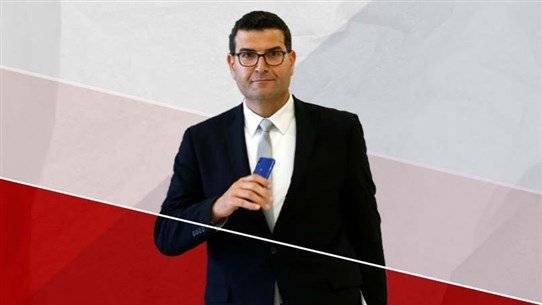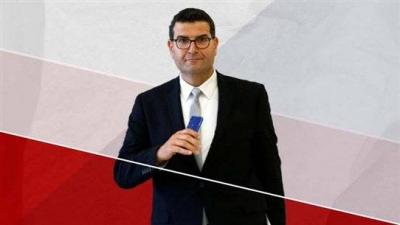Files pile up on his desk, including a plan for wheat, an agreement with the World Food Program, a national rabies plan, and many other studies and projects in a ministry that the political class has considered a "second-class" for decades. The crisis has transformed it into a sovereign ministry, with its most crucial role being to maintain the food security of the Lebanese and their resilience during one of the toughest crises the country has faced. "We are in a wheat war," says Agriculture Minister Abas al-Hajj Hassan, describing the reality in Lebanon and the world as they search for a minimum level of self-sufficiency. The plan is ready, and they are now working on a comprehensive survey of all of Lebanon to identify cultivated and uncultivated lands, asserting that Lebanon is capable of growing soft wheat suitable for bread production, contrary to what has been rumored in the past.
In detail, al-Hajj Hassan reveals efforts to secure funds to support farmers and provide seeds in cooperation with the Food and Agriculture Organization (FAO) and the Arab Center for the Study of Arid Zones and Dry Lands (ACSAD). The plan targets 200,000 dunams and aims to produce about 150,000 tons of wheat next year if one dunam yields approximately 500 kilograms. In other words, the plan would secure three months of Lebanon's wheat needs. He emphasizes that the Ministry of Economy will purchase wheat from farmers at a price tied to global prices as an incentive for farmers to sell to the ministry, thereby preventing smuggling at the same time. The mills will also be partners, as they will conduct the grinding process after agreeing on the type of wheat to be imported if it meets the required specifications.
Al-Hajj Hassan, considering his organized media background, is seeking long-term strategies to organize and uplift the agricultural sector. From this perspective, he has initiated the launch of a "farmers’ registry," which has never been adopted in Lebanon's history, and could bring a positive shock if implemented. According to this registry, each farmer will receive a national number that keeps track of details about them and the agricultural land or livestock they possess, which will facilitate any agricultural plan and help establish a planting calendar and guide for farmers.
Another urgent challenge awaits the Minister of Agriculture, which is the marketing of Lebanese apple production, an old problem that reoccurs every year. In this context, al-Hajj Hassan appears open to various political forces, parties, and stakeholders, emphasizing the need to involve everyone in this mission. While calling on traders to collaborate in marketing apples, he is inclined to involve municipalities, allowing each municipality to set the price for apples in their area, as each type of apple has its price depending on its quality and the region it is grown in. Regarding the cold storage that preserves what remains from the season, he confirmed his readiness to assist in cooperation with the Minister of Transport to secure diesel fuel for them at a directed price.
On the domestic marketing front, regarding exports, he disclosed that work is underway to open new markets, especially in India, Pakistan, and the Maghreb, hoping to reopen Gulf markets for Lebanese apples, highlighting the good relations with Saudi Arabia and all Gulf and Arab countries, saying: "I am now ready to visit the Kingdom."
Al-Hajj Hassan announced that a summit will be held in Jordan on September 25-27, gathering all Arab countries to establish a joint agricultural initiative, revealing that the Saudi Minister of Agriculture is expected to attend. He noted that this summit is a continuation of the quadripartite summit held in Beirut and will expand in Amman to include other Arab countries, announcing a planned visit at the end of September to Egypt where he will meet the Secretary-General of the Arab League to devise a plan for Arab food security.
And it would be remiss not to discuss the issue of cannabis legalization, especially since the minister hails from the Beqaa region, which has suffered immensely due to this issue and has paid the price for non-legalization. Where does the legislation for cannabis stand? Al-Hajj Hassan responds: "I worked to bring the regulatory body for cannabis to light and have brought it to its final stages, compiling the names, but the final step remains to place it on the Cabinet agenda. Consequently, this file has been postponed to the new government, but we have lost a billion dollars annually due to its delay." "We can do something," says al-Hajj Hassan, emphasizing that "it is our duty to straighten matters out and I am pleased that I am trying to work." There are no important and marginal ministries; the Ministry of Agriculture is a prime example of the fragility of the economic system that Lebanon has relied on for years, with no attention given to agriculture and industry. If the opposite had been done, we would be in a different place today, and the crisis would not threaten the Lebanese people's basic sustenance and loaf of bread.




